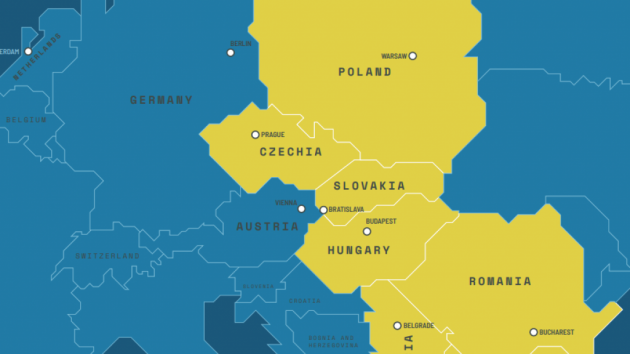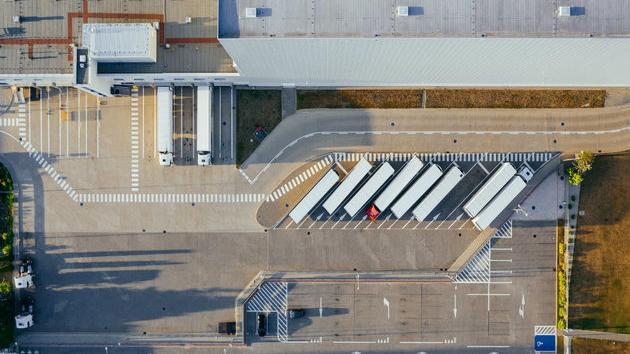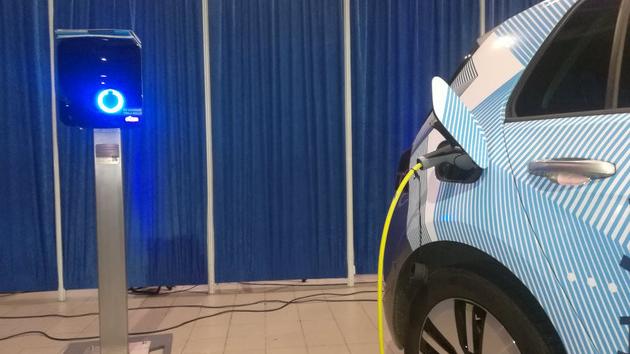Post-Pandemic Logistics – What We Did Wrong and What Every Company in Serbia Needs to Do Now
Source: eKapija
 Thursday, 05.05.2022.
Thursday, 05.05.2022.
 14:51
14:51
 Thursday, 05.05.2022.
Thursday, 05.05.2022.
 14:51
14:51
Illustration (Photo: Songquan Deng/shutterstock.com)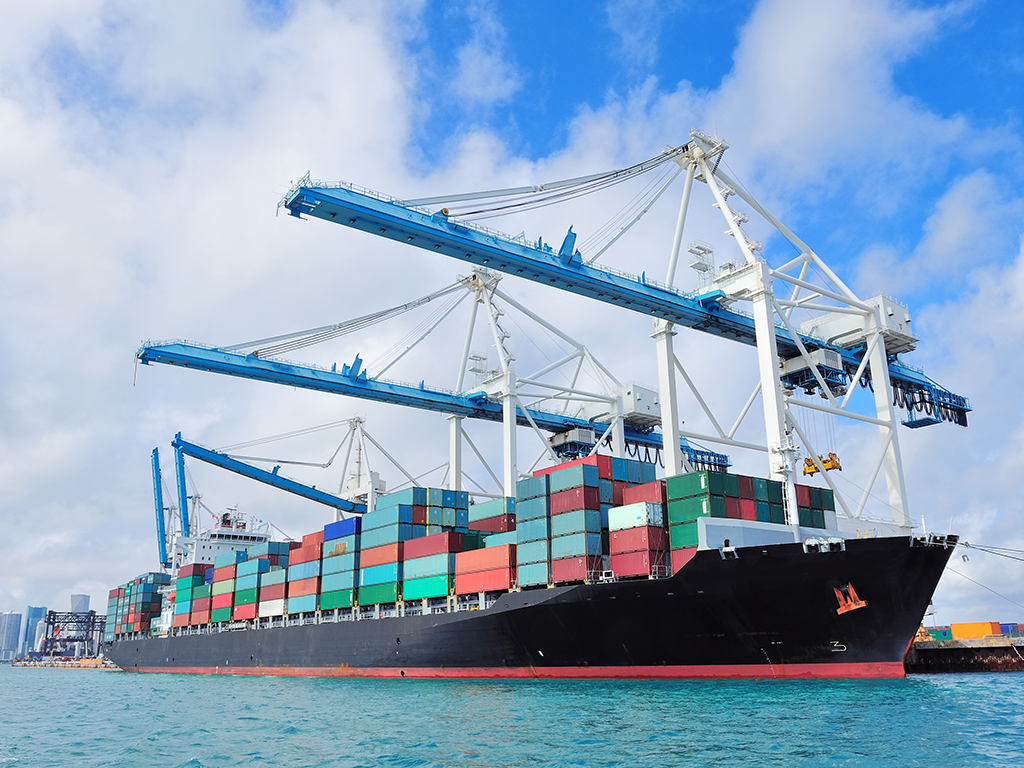

There’s still no light at the end of the tunnel. In early 2022, experts projected that the pressure on supply chains would continue and that an improvement could be expected no sooner than in the second half of the year. Pessimists, or rather, realists, believe that it will take us several years to go back to the pre-pandemic stability of supply chains.
That everything is still uncertain was apparent in March when China experienced the largest increase in the number of infection cases since the beginning of the pandemic. Shenzhen, one of the world’s biggest ports, was under lockdown, which led to the closing of factories. The issues of the closing of ports and a reduction in workforce became current again and showed that the pandemic was still complicating things in transport and logistics.
Boat transport industry makes record USD 190 billion
Dr Nebojsa Brkljac, an assistant professor at the Faculty of Technical Sciences in Novi Sad, says for the eKapija portal that it is very difficult to predict when logistics will recover from the situation caused by the pandemic.
– Each new instability factor additionally deepens the uncertainty of the duration of the recovery. The pandemic has taught us that the stability of global supply chains is very vulnerable. Numerous problems have been brought to the fore, which we obviously weren’t aware of. The instability of the market and the shortage of vital supplies breaks even the strongest partnerships in those chains in a very short amount of time. The lack of human resources is also a big challenge – our interviewee believes.
The impression is that companies were too quick to believe that the year 2022 would bring an improvement. Those dreams were dashed quickly. The Danish logistics group Maersk announced at the beginning of the year that 2022 had not started as they had hoped it would and that the crowding had not been reduced at the expected pace. The longest waiting time for containers to be loaded onto ships was recorded at the Long Beach Port in Los Angeles, between 38 and 45 days. The data of Statista best illustrate the changes – before the pandemic, it took slightly over 40 days to transport goods by ships from China to the USA, whereas, during the pandemic, in July, August and September 2021, it took nearly twice as much for the same route, 70 days.
Less crowding at European ports than in American ones (Photo: Pixabay/postcardtrip)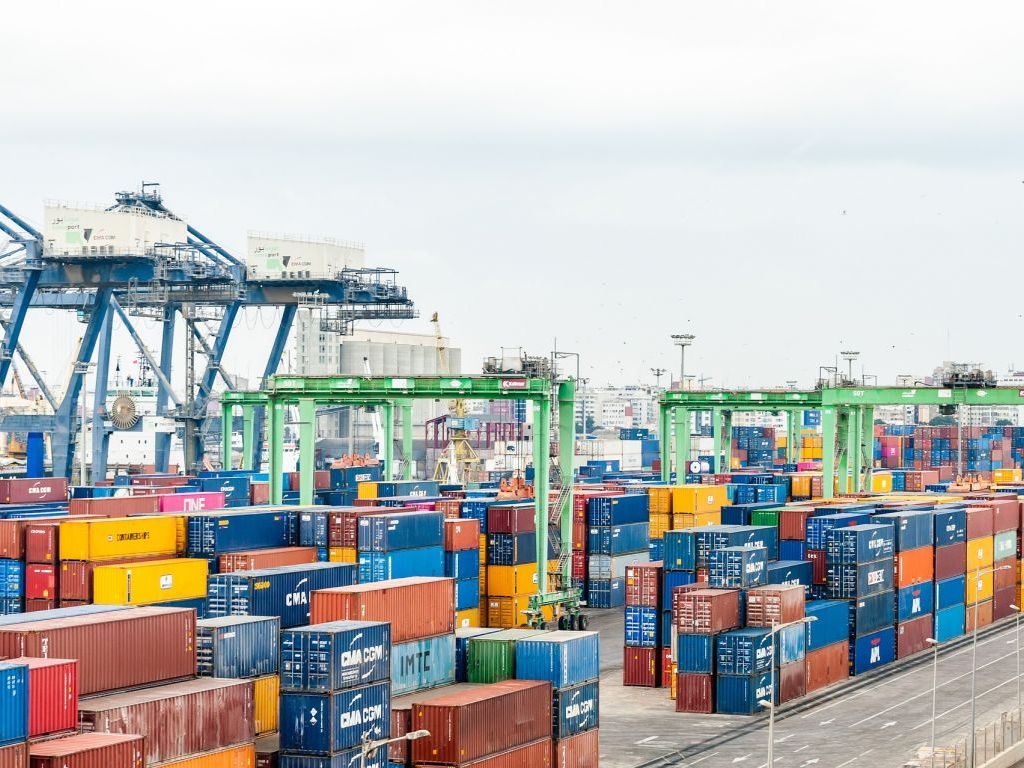

Europe has experienced less crowding at ports compared to big American ports, but the high prices did not bypass it. The shipment reservation platform Freightos announced in October last year that the transport of containers from Asia to the U.S. West Coast was 330% more expensive that the year before. The price of the delivery of goods from Asia to North Europe increased 570%. All this contributed to the fact that the industry of boat transport of goods realized the record amount of USD 190 billion last year, as estimated by the consulting company Drewry.
When and whether the prices will return to the past levels depends on numerous factors. The interviewee of eKapija explains that the increase of the level of stability in supply on the global level, the prices of energy sources and in the labor market will also bring back the prices of space rent on ships within the “real” bands.
– However, it is very difficult to predict the precise time when this happens. Logistics is one of the fastest changing sectors, which adapt to the current needs and conditions of the market. All the flaws of these services that were noticed during the pandemic are an opportunity to improve them and conquer new markets, so it is believed that the organizations which provide these services will act in that direction – Brkljac notes.
Changes in the market of global players
This is precisely what’s been happening in the past months. In December, Maersk announced the acquisition of LF Logistics, which is based in Hong Kong. The agreement worth USD 3.6 billion is one of the biggest takeovers in the company’s history and it aims to expand the coverage of the Asian-Pacific region. China is not standing still either. The launching of the Chinese logistics giant China Logistics Group drew a lot of attention in December. The new company, whose capital has been estimated at around USD 4.7 billion, was created as a merger of five state companies with the aim of increasing competitiveness on a global scale.
The entrance of big new players to the market will considerably affect logistics in the world and Serbia alike, our interviewee believes.
– There are numerous examples of such situations in each field, not just in the sector of logistics services. Some changes of that type started even before the pandemic. Each “big player” necessarily initiates changes, most often of a big format, and considerably influences the global market, so it will proportionally influence our market as well – Brkljac points out.
Some ports have switched to 24/7 operations (Photo: nattanan726/shutterstock.com)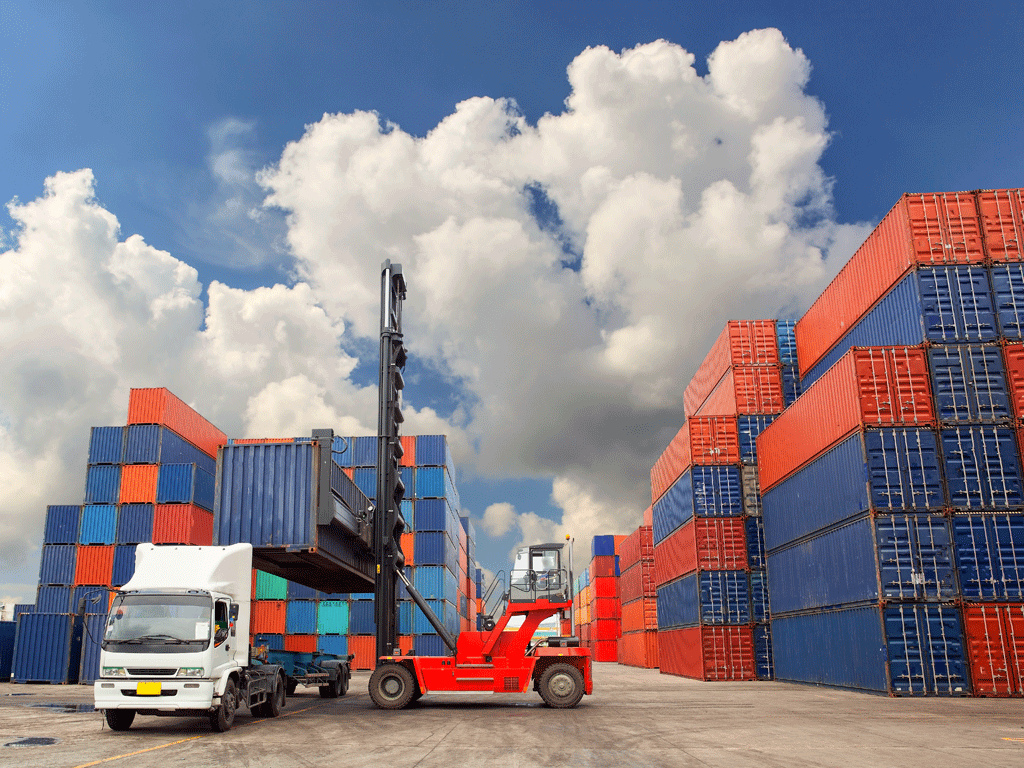

The future of logistics
Changes are already taking place. For example, since boats are waiting more then usual at ports to deliver and receive goods, ports worldwide have tried to accelerate things, so several have switched to 24/7 operations in order to meet the demand. Which ones of the current changes will stay in the future remains to be seen, but the post-Covid era will require flexibility and close cooperation of all sides in the supply chain.
– The effects of the problem with supply will be visible and probably more intensive for a longer time period. The uncertainty of the supply and demand, the limitations of the production and transport capacities, as well as delays, are the pronounced characteristics of supply chains in the next few years. The problems in the energy sector on top of it certainly can’t have a positive impact on solving the consequences of the pandemic, in terms of logistics and supply chains – Brkljac believes.
Serbia’s advantage is its geographic position, its flaw is the lack of human resources
What makes things more difficult, and this is especially pronounced in Serbia, according to our interviewee, is the increasingly prominent lack of human resources. As he says, although digitization and automation are leading us toward a reduction of the need for human workforce, securing competent and easily available staff is still one of the priorities for providers of logistics services.
– The inability to compete with the paying power of organizations from developed western markets is a problem that has existed for a long time now, and is nothing new, but its effects are becoming very prominent now. Our advantage, as is widely known, is our geographic position. The possibilities of the relatively easy availability of all forms of transport are still not used to the full extent. The need for outsourcing logistics activities is growing bigger and that’s where the possibilities for the growth of the existing organization and the creation of new ones that will provide 3PL or even 4PL services, on the regional or wider market, are visible – Brkljac explains.
Advice for companies in Serbia
A survey carried out at the end of last year in Germany showed that over a half of companies which operate with foreign clients are experiencing serious problems in supply chains and logistics. In order to cope with this, they are looking for more suppliers, shortening the delivery routes, and they are even moving their own production.
The Association of German Chambers of Commerce and Industry (DIHK), which carried out the survey, noticed that East Europe had profited from the trend of the diversification of supply chains or the shortening of logistics routes. Ukraine and Serbia have become more attractive, DIHK points out.
Companies should consider making supplies too (Photo: Marcin Balcerzak/shutterstock.com)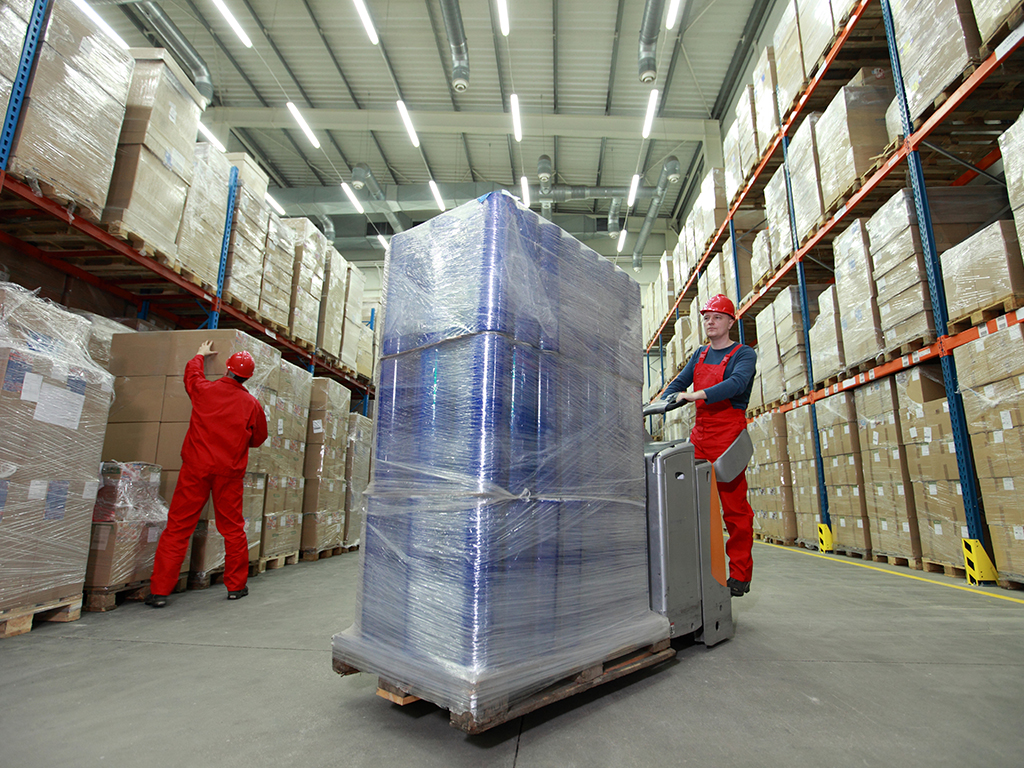

Diversification in supply chains is a necessity and an inevitability for companies in Serbia as well, our interviewee believes.
– It’s easy to have one reliable supplier of raw materials, but the sensitivity of that kind of supply has become more than apparent in the pandemic conditions. Organizations become very vulnerable when they depend on one supplier for a key component or material. If the supplier produces the article at only one factory or state, the risks of supply disturbance are even bigger. An obvious way to solve the great dependence on one channel of supply or one supplier of medium or high risk is to hire more of them, from locations which are not subject to the same risks – Brkljac advises.
Another advice for our companies pertains to defining the quantities of the necessary additional supplies, if the suppliers, products and materials are not immediately available.
– Of course, backup supplies carry with them the risk of expiration and they block the capital. That runs counter to the currently popular practice of “just in time” supply and owning only the necessary/minimal level of supplies. However, the benefits relative to all the costs of the disturbances that occurred certainly need to be taken into account, including all the lost income, as well as the higher prices which would have to be paid for materials which have suddenly become scarce. It is logical and likely that the indicator of success will be an adequate choice between the levels of the application of the “just in time” and “just in case” approaches – concludes the assistant professor Dr Nebojsa Brkljac.
Marija Dedic
Companies:
 Fakultet tehničkih nauka Univerziteta u Novom Sadu
Fakultet tehničkih nauka Univerziteta u Novom Sadu
Maersk Logistics & Services d.o.o. Beograd
Tags:
Faculty of Technical Sciences Novi Sad
Maersk
Drewry
Freightos
LF Logistics
China Logistics Group
Association of German Chambers of Commerce and Industry
DIHK
Nebojša Brkljač
Shenzhen
post pandemic logistics
supply chains
ship containers
boat transport of goods
crowding at ports
Long Beach Port
logistics services
digitization in logistics
workforce in logistics
diversification in supply chains
supply disturbance
backup supplies
just in time
just in case
Comments
Your comment
Most Important News
Full information is available only to commercial users-subscribers and it is necessary to log in.
Follow the news, tenders, grants, legal regulations and reports on our portal.
Registracija na eKapiji vam omogućava pristup potpunim informacijama i dnevnom biltenu
Naš dnevni ekonomski bilten će stizati na vašu mejl adresu krajem svakog radnog dana. Bilteni su personalizovani prema interesovanjima svakog korisnika zasebno,
uz konsultacije sa našim ekspertima.


 Izdanje Srbija
Izdanje Srbija Serbische Ausgabe
Serbische Ausgabe Izdanje BiH
Izdanje BiH Izdanje Crna Gora
Izdanje Crna Gora


 News
News







